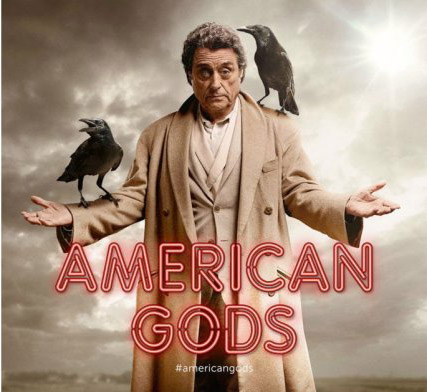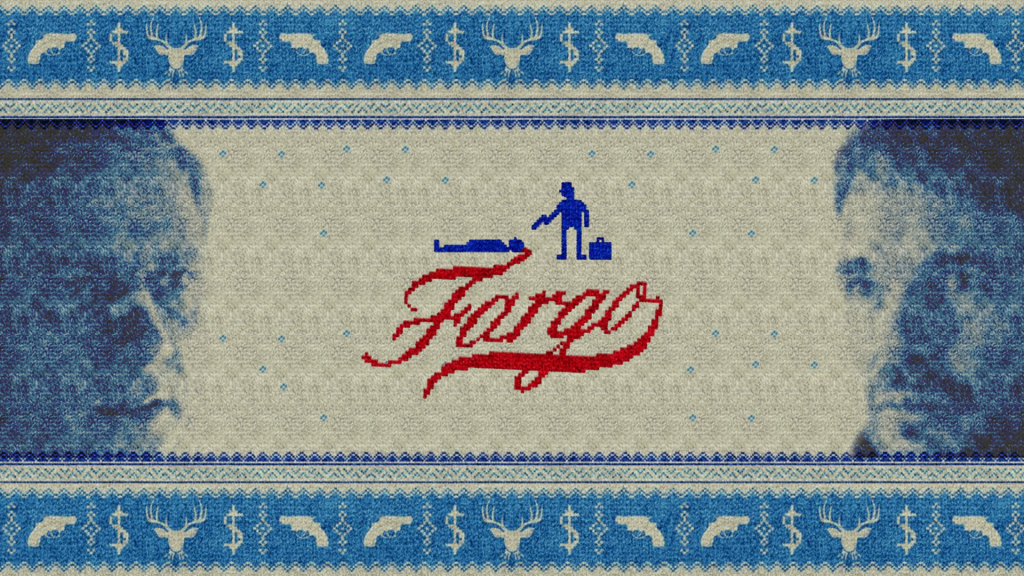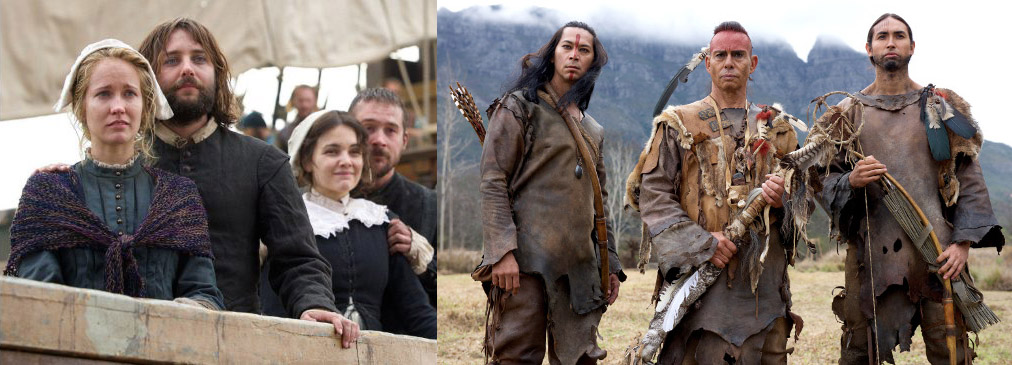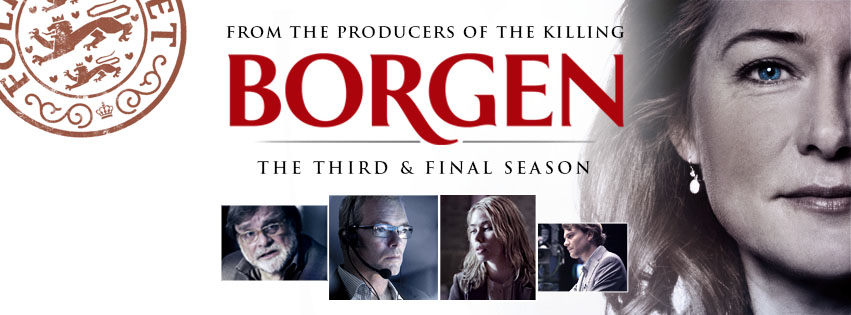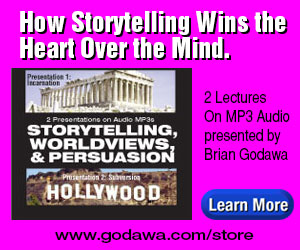One of the most offensive truths to modern man is Original Sin. How dare those judgmental Christians say we are all guilty sinners in the hands of an angry God! How dare you call my wonderful mother, who spent her whole life helping people, damned because she doesn’t believe in Jesus! People are basically good, aren’t they? I mean I never killed anyone. We’re not in the Matrix. I’m just an average American chemistry teacher with a family and a special needs kid. I’m not evil. People are basically good.
Yeah, right.
Anyone who’s ever had children knows for a fact that people start as selfish little sinners who have to be corrected and taught over and over again to be good. Why? Because, well, we’re all basically born bad. But of course, humankind is perpetually cunning in suppressing the truth in unrighteousness, so the obvious truth notwithstanding, many people still believe that people are basically good.
Enter, Breaking Bad.
I remember first watching the series years ago. It was a brilliant moral dilemma of a high school chemistry teacher who discovers he has lung cancer and realizes his wife and special needs kid will not be taken care of when he dies. He turns away from joining a high risk small business startup that goes successful and comes to the dread conclusion that the only way he can provide for his family’s future is to do what he does best in a different kind of entrepreneurship, an illegal operation of a meth lab. Since chemistry was his strong suit, he could provide the purest meth ever and build a name for his product — and barrel loads of money for his family, so they will not suffer when he is gone.
This is quality storytelling to set up a scenario where a good guy turns into a villain, and he becomes one through a morally complex dilemma. But it ain’t original. Read Shakespeare. It’s called a tragedy. A lot of gangster movies are this. And that is what BB is, a gangster rise and fall story on the greatness level that exceeds The Godfather.
But the point is to explore what is the flaw in us that, if fed, creates the monster we despise? We can all understand the essentially good motive of wanting to provide for one’s family. Nothing more primal or moral than that. And even if we think the criminality is wrong, we certainly can understand the temptation of being backed into a corner without much of an apparent choice. It forces us to think about our own lives. What would we do? Would we do evil that good may come? Would we love our family so much that we would sell our own soul to the devil in order to save them? These are not inconsequential or superfluous questions. They force us to examine our own morality and ethics. Our own badness.
And the fact that BB has the opportunity to take the time to walk through the step by step process of the decline of a man’s moral sanity only makes it that much more truthful and believable. For me the point of it all is this: Breaking Bad proves that the same evil in murderers, drug dealers and soulless narcissist users is in all of us — all of us. It just needs to be fed to come to fruition. But it’s there inside of us all waiting to break out. Watching BB makes you believe that, yes, any normal good family guy has the ability to make moral compromises that lead him down the path of destruction. After all, murderers aren’t born murderers, and every villain constructs some kind of moral justification to assuage his guilt. Evil does exist, despite the postmodern evil deniers. One man’s terrorist is not another mans’ freedom fighter, he is a terrorist.
And that is Original Sin.
Traditionally, Original Sin is the theological doctrine that Adam, as the “first man,” and therefore federal representative of the human race disobeyed God which broke his spiritual relationship with God and bent his nature to bad. Since all humanity comes from that first Scriptural pair, we all inherit Adam’s badness and the death and consequences of his rebellion.
I am fully aware of all the arguments against this truth. It isn’t fair to blame us for what Adam did, Scientifically, we cannot have come from one pair of human progenitors, how do we inherit a sinful nature, yada yada. It’s all irrelevant. It doesn’t matter where you think it came from, it doesn’t matter what “logical” problems you may have with an existential proposition. Because you see, Original Sin is the one theological truth that is an undeniable empirically observable fact: We are all basically bad. It only takes the right choices to bring that bad out.
Humankind is not basically good. We are basically bad. And all it takes to break that bad out is the right circumstances and the accumulation of certain moral choices. Little decisions lead to bigger ones. Our justification for a little white lie can build to a justification for murder. It’s how our bad nature works. BB incarnates that disturbing and often denied truth about ourselves. And it’s why modern people are completely blinded by their self-righteousness. The denial of our essential badness is the first moral decision that leads us to the destiny of Walter White.
The only difference is that Walt has let it come to fruition. He has broken bad.
Of course, one of the dangers of such studies of the making of a villain is the potential of building a story where we root for the bad guy. That is, we start out sympathetic, and like Walter, we keep watching his story and keep rooting for him by making the same choices in our rooting for him that he made in his actions. But there comes a point where we may watch with moral lesson, but we must turn in our affections or become condemned by our own morbid curiosity.
That moment for me came at the end of the second season, where Walt lets Jesse’s junkie girlfriend die in her own vomit while overdosing because she was going to let the cat out of the bag. At that point he is no longer sympathetic. And in fact, I stopped watching the series because I didn’t want to root for a hero who made such choices.
I came back a year or so later to finish watching because I had made the mistake of not appreciating the power of the tragedy: A moral lesson of what NOT to be, of how NOT to behave, because of where it leads.
This would have been a picture glorifying evil had it not been for the existence of Jesse, his drug addict, slacker helper, who has risen to become the counterpoint to Walt. Jesse becomes the villain, whose conscience is awakened to his own depravity by seeing the evil consequences of Walt’s choices and realizing he is just as guilty. By the end of the series, Jesse has become despairing of life itself and throws away the proceeds of their dirty deeds because it has become blood money to him. He even helps the feds to try to nail Walt.
As Walt descends, Jesse ascends, and struggles with true moral guilt. One particularly poignant aspect of the series that shows the modern humanistic denial of evil is in Jesse’s Narcotics Anonymous group. We see them going through the standard humanistic memes of “no judging” and making everyone feeling accepted and denying their guilt and claiming victim status. At one point Jesse finally gets sick of it all and condemns the leader of the group by saying that if we shouldn’t judge, then we’re saying nothing is wrong, but they should judge things that are wrong, or we are deceiving ourselves and perpetuating our own badness. It’s really quite a brilliant exposition of the essential delusion of humanistic psychiatric notions of relative morality and our culture of denial. We are not victims of our moral behavior, we are responsible, and judgment provides the dignity and value to our humanity because it affirms that we have the ability to choose other. It is precisely our moral culpability that gives us true value. Otherwise we are of no more value than rocks.
Vince Gilligan, the creator of the series has revealed this very questioning in his own life when he says. “I’m pretty much agnostic at this point in my life. But I find atheism just as hard to get my head around as I find fundamental Christianity. Because if there is no such thing as cosmic justice, what is the point of being good? That’s the one thing that no one has ever explained to me. Why shouldn’t I go rob a bank, especially if I’m smart enough to get away with it? What’s stopping me?” (NYT)
And this is another moral repercussion of the tragic decline of a hero into a villain. We as viewers are certainly fascinated by the moral complications and ramifications of bad choices that are made for good reasons. After all, this “ends justifies the means” thinking dominates our culture from public education indoctrination to the attack on businesses in the name of “income disparity” to the persecution of political enemies through the use of the IRS and mainstream news media political lies. No villain sees himself as a villain. They always have a rationalization for why they do evil. “To help my family,” “to level the playing field,” “to right past wrongs,” “social justice,” “because the ‘other’ is racist, sexist, bigot homophobes, Islamaphobes.” The irony is that if we the viewer continue to secretly harbor a rooting for the “villain-as-hero” because, after all, the others around them are worse villains, then we viewers are indicted by our own badness.
This is why the consequences of behavior in a story is critically important to its moral worldview.
Which brings us to another aspect of the denial of our badness, another theme of the series: Actions have consequences. But not in some kind of philosophical blathering. Rather, our moral choices in life are not secluded to our own freedom, as if morality is relative and we can construct our own morals for our own purposes as many will say. Morality is not relative. All our moral choices ultimately have effects and ramifications that effect other people. We do not exist as authorities of our own moral decisions in a free universe. We are accountable for everything we say and do.
This is born out in a dozen little ways of how it affects and destroys Walt’s wife as she becomes complicit and how it ends in deaths of Walt’s loved ones. But more powerfully we see early in the series of how Walt’s allowance of that girlfriend to die in her own vomit, leads to the despair of her father, who is an air traffic controller, who then does poorly at his job because of his suffering, which leads to a plane crash and hundreds of innocent people dead. Unfortunately God is not a part of this storyline, but the notion of our interconnectedness still rings true in this and many other ways, of lives destroyed because of Walt’s choices.
Moral relativity is a lie. We do not “choose” our morality in vacuums of our own freedom and autonomy. All our choices are part of an interconnectedness with humanity that does end up hurting others. We are accountable to moral absolutes.
For all you humanists, that means THERE ARE NO VICTIMLESS CRIMES. Or for that matter, THERE ARE NO VICTIMLESS MORAL CHOICES. This could be one of the most powerful moral themes in all of television. We are guilty for what we do. And our sins will find us out.
Let’s just hope that the finale proves this moral truth that it has reinforced throughout the series.
END OF THE SERIES: SPOILER ALERT
Okay, so I saw the series finale and I have to say it was not very impressive. On the one hand, it was somewhat morally appropriate in that Walt does die. That tragic anti-hero must pay the price for his sins that ruined so many lives. Walt ultimately dies by his own hand, when he takes a bullet from the rifle he set up to automatically shoot up the bad guys at the end. Okay, this is poetic justice because one of the ongoing moral themes of the series was that Walt’s choices were moral choices that did not merely affect him but also hurt the lives of others. So it is appropriate that he falls victim to his own actions as well. And he does end up getting his revenge against the gang of very evil men and one woman who betrayed him and killed Walt’s brother in law Hank. With that there is some emotional satisfaction in the most evil not getting away with their dirty deeds. And Jesse, the junkie turned partner who awakened to his moral conscience and even turned to help the DEA did get away from the bad guys at the end, which satisfies those who want moral conscience rewarded.
On the other hand, Walt’s death was quite calm and morally unsatisfying for the evil he had become. Let me explain. Movie snobs and other cynics will not like what I am about to say, but it’s the truth when it comes to storytelling.
There is a reason why it is a cliché in so many movies of having the villain often fall to his death from a very great height, or be obliterated in a very extreme fashion (like blown to bits or crushed or burnt on fire or the like). That reason is that those gruesome endings are what give us emotional satisfaction of the punishment fitting the crime. I am not saying legal reality here, I am saying emotional and moral reality for the viewer. Falling from a great height is the perfect universal metaphor for the essence of sin and the fall of humanity into evil. And that satisfies us on a primal spiritual level like nothing else can. I am not saying Walt should have fallen off a cliff, but I am simply explaining that his moral evil was so deep that even though we struggled with our conflicted feelings of rooting for him against the bad guys, but then admitting that he deserves to die for the evil he had wrought, we should in the end be slapped in the face by the moral spiritual truth of the depth of Walt’s guilt.
This, Breaking Bad’s finale did not do, and was thus an unsatisfying cynical compromise. Walt’s soft slipping into unconsciousness without drama is an anticlimactic unsatisfying way to express the moral guilt he had or the spiritual punishment he required. It needed to be extreme, jarring, something that would wake us all up from the delusion of any sympathy we may have had for this man turned into monster. It needed to reinforce the moral drive of the entire series that actions have consequences. To misquote a famous saying, with much evil comes much responsibility and therefore much stronger consequences.
And don’t give me the nihilistic claims of “realism” as if Breaking Bad is about reality (You know, bad people get away in the real world, justice isn’t always achieved etc.). BB is not reality, it was a moral fable, and as a moral fable it should have ended with the same moral wisdom that the series was built on. Instead, it whimpered out with a half-assed humanistic compromise by making Walt die, but peacefully after getting his revenge.
And that is the biggest moral problem of all. Yes, Walt loses what is most dear to him, his family, because of his criminal obsession with providing for family. And yes, there is a kind of acceptance of his just dessert when he allows Jesse the opportunity to kill him. He saves Jesse from the final shootout. But Walt still kind of wins as well. After ruining his family’s lives, getting many innocent people killed, including his brother in law, Walt’s overarching goal was to provide for his family with his blood money. And even though his son rejects it, he sets it up through criminal intimidation to have a trust fund made for his son. So he does get his money to his family in the end. He outsmarts everyone, is able to achieve his goal of revenge, and getting his money to his son before he died, and he was going to die from the cancer anyway, so Walt dies a peaceful death having basically achieved his goal of providing for his family and cheated death. Something we should not be rooting for. A less than satisfying ending for me.
But I want to end on a positive note. One qualification to my nit picking here is that at the end, Walt finally does admit that his obsessive motive for the entire series of engaging in crime to provide “for my family” was in fact not for his family but for himself. And that is the human pride of original sin. The underlying darkness to the façade of criminals’ and gangsters’ devotion to family is that it is ultimately pride that drives the human heart into the rationalization for each little moral compromise that ends in the evil we are so offended at being accused of but are in fact guilty of having in our own hearts.
We are Breaking Bad.
